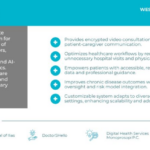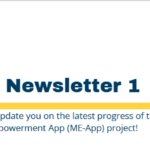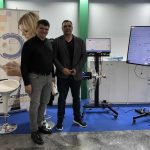The concept of burnout (internationally known as burnout) was introduced in the late 1970s and was used to describe the negative reaction of workers to occupations with stressful working conditions.
Mental resilience refers to the ability of an individual to maintain or recover their mental health and to adapt to adversities optimistically (Herman et al., 2011).
Occupational burnout affecting healthcare workers’ mental, emotional, and physical well-being, is continuously growing among primary and secondary healthcare professionals and its prevalence and harmful effects in the healthcare workforce have been worsened, after the COVID-19 pandemic. An ongoing question relates to how burnout affects doctors’ and nurses’ health and well being and the quality of care they deliver to patients.
In the context of MERR project, we will try to develop the means and resources to assess the levels of stress and burnout amongst healthcare professionals (including medical students), and to provide them with training (innovative and joint curricula), including new techniques, practices and knowledge, to manage intense stress and improve their mental resilience.
The levels of stress and burnout of healthcare professionals (doctors/ nurses) will be classified, categorized and evaluated based on the receipt of data from wearable devices in real working conditions through the monitoring solutions.
Synchronous and asynchronous adapted training of the target group will be supported on new techniques and strategies for self-management of stressful situations as well as good practices for managing intense stress in daily work situations.
It is crucial to address burnout and promote a healthy work environment, ensuring high-quality patient care focusing on developing effective interventions and their implementation and sustainability. There are several solutions developed, however no single intervention would be sufficient to deal with burnout. Hence, a multi-pronged and hybrid training approach involving self-monitoring and consultation expects to be most effective in managing this condition.
Specific objectives of MERR project:
- Familiarize primary and secondary healthcare professionals with innovative digital monitoring tools that provide personalized data on stress management in order to optimize their services to their patients and maintain resilient mental health and well-being.
- Empower healthcare employees to obtain stress management competencies and digital monitoring skills and successfully adopt such technologies to improve their personal mental and physical
- Create a training system for perception stress management to be used among healthcare professionals
- Inform target groups about good practices and techniques to improve their ability to cope with occupational stress and burnout;
MERR project relies most of its activities and resources in developing and training the target group and the involved trainers in new highly innovative tools able not only to perform effective training but also dig into the actual problem and support end users with the tools to practically monitor their stress levels and build on their mental readiness and resilience. Researchers and healthcare professionals from 4 countries (Greece, Germany, Belgium, Austria) all coordinated under #SYSTSERV, have come together to realize the outputs of this project This tool will be in the form of a mobile application that utilizes built-in sensors of mobile phones to measure in real-time specific biomarkers related with stress levels. There will be a hybrid combination of accredited protocol-based questionnaires and the non-invasive diagnostic techniques of monitoring stress level.






